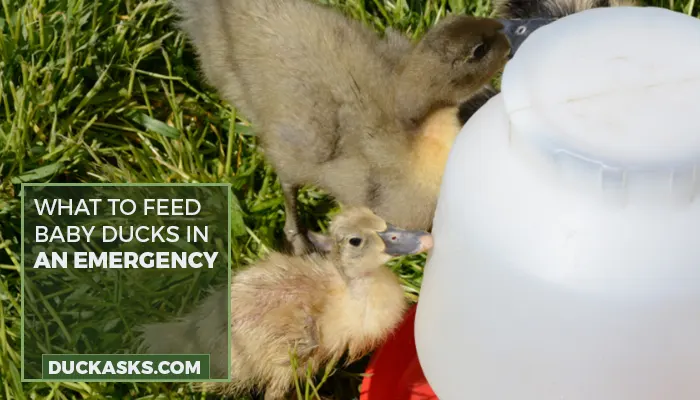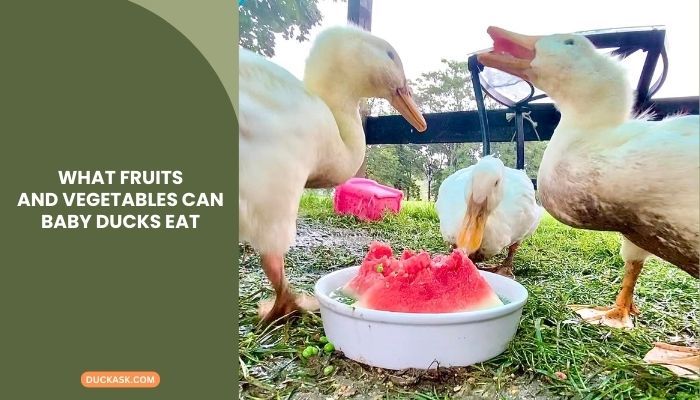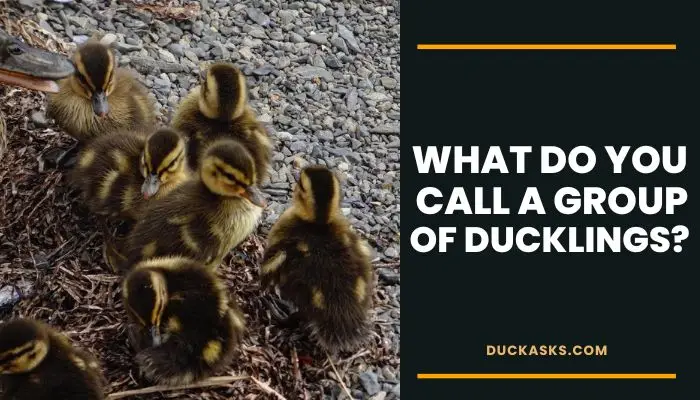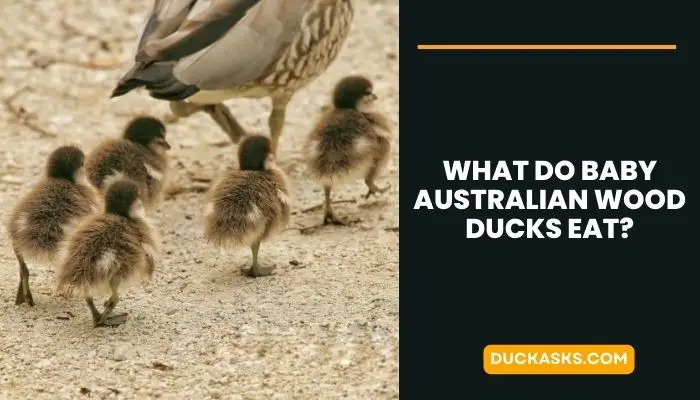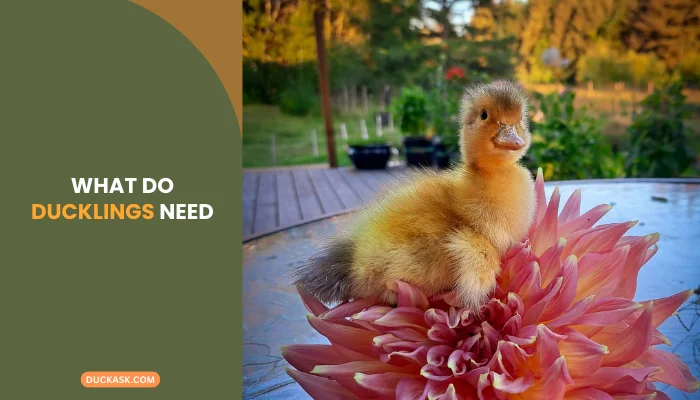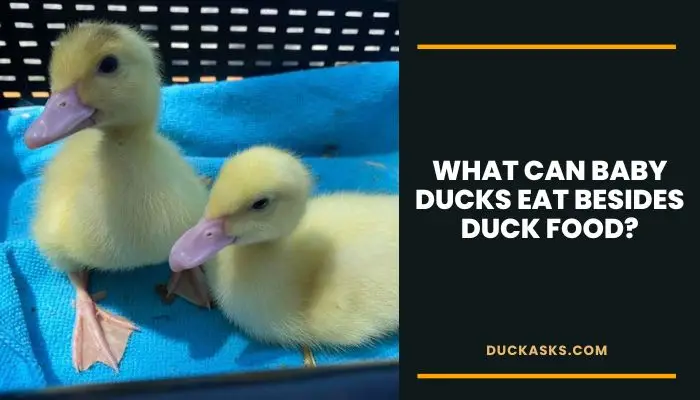What Month Do Ducklings Hatch?
Have you ever noticed how children gush out of the school gates as soon as the bell comes on? You’ll experience something similar during spring on the wetlands.
Rolling fluff-balls of cuteness all around. Why so?
It’s the duck breeding season that starts typically from mid-March in the United States.
Almost 28 days after the incubation period of duck eggs, they wait to expire and hatchlings start to emerge. Unlike humans, after just about 10 hours after hatching and getting used to using their feet, ducklings start walking.
Within their nest, the ducklings dry themselves from the fluid of the egg. Afterward, their mother shows them the way to any nearby waterbody to drink water.
We encourage you to read further and find out more about duckling hatching so you can tackle it like a pro.
Looking for more article about ducklings:
What Time of the Year Do Eggs Hatch?
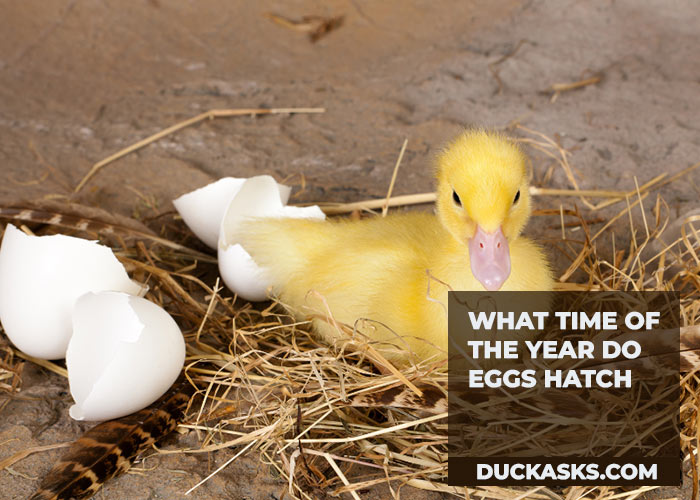
Traditionally eggs hatch during Spring. Warmer seasons are better suited to hatch eggs. During egg hatching, if the season remains cold, the new hatchling’s life might be jeopardized due to low temperatures.
How Do You Know When Ducklings Are Ready to Hatch?
After 21 days, duck eggs start rolling. Gradually, the sound will emerge from the egg.
You will hear a mild squeaky ‘Pip’ noise. Followed by rolling you will notice your eggs knocking and consequently minor hair-line cracks will show on the egg surface.
Eventually, the eggshell will zip apart. The hatchling initially will struggle to come out of the egg but it should not be helped during that phase.
It’s very important that the duckling adventures out on its own. It helps the duckling grow the strength of its limbs. They ready them to walk almost right after birth.
An important part of the birth process is the duckling removing the eggshell. If you try removing the shell to help the duckling, it might lose bits of its fragile skin and bleed.
Thus it’s probably a better idea to let the duckling help itself. Correct the temperature and humidity since it is a crucial step.
How Long Do Ducklings Stay in the Nest After Hatching?
After hatching, the newborns stay around 10 to 12 hours in the nest before their mother moves them to any nearby wetland. Within this time they dry themselves from the egg fluid.
Ducklings also need their mothers to shelter and protect them before they fully become independent. If they walk nearby any other mother duck, she might harm or even kill the duckling if it gets close to her brood.
The newborn also needs its mother’s warmth. It is not born waterproof naturally. It has to be aided by its mother. After almost 50 to 60 days they are fully independent.
What Time of the Day Do Ducklings Hatch?
Since the duckling requires warmth and warm temperature, it hatches a few hours after sunrise. Somewhere in the region of 2-3 hours post-dawn. Overall they may hatch at any time between day and night.
The time of hatch differs from species to species. Gadwall ducks mostly hatch during the night time while Mallard hatch during the day.
What Are the Conditions I Need to Set for My Ducklings to Hatch?
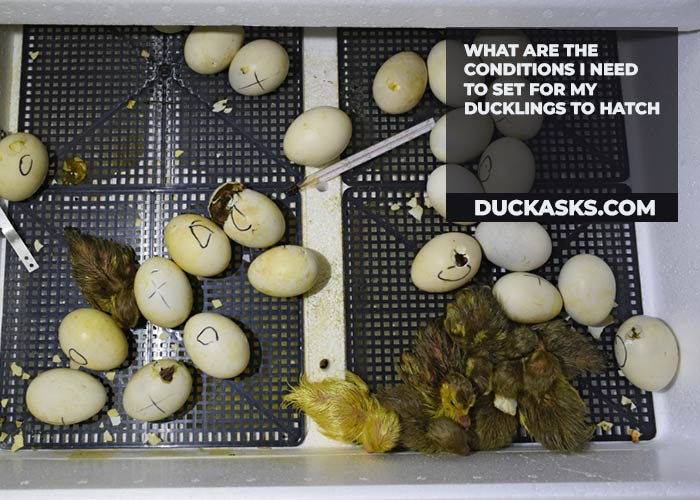
You should set the temperature of the incubator to 37.5 degrees Celsius or 99.5 degrees Fahrenheit. Humidity must be leveled to 55% and keep the incubator going for two days prior to egg hatching.
How Long Can a Hatched Egg Stay Inside the Incubator?
Since the duck absorbs the remaining yolk inside the egg, it receives enough nourishment from there. For this reason, a hatchling is fed enough to remain for up to a day inside the incubator (24 hours).
This duration can stretch up to 48 to 72 hours. Dispensing on how much the chick needs to dry. Hatcheries keep chicks for up to three days inside an incubator. However, you make sure the chick is properly dried and there is no egg left to pip.
What Are Fed to Hatchlings?
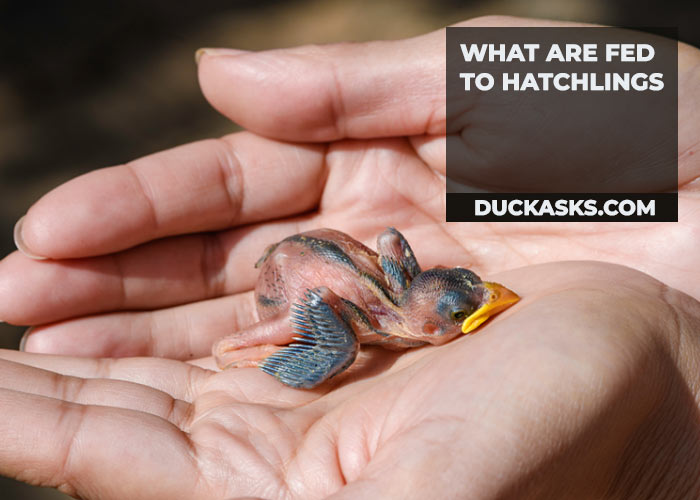
Insects! Lots and lots of insects! Baby ducks are fed mainly mosquitoes, ticks, fleas and a host of other small insects for the protein needed to grow.
Ducklings should be fed every 2-3 hours so you need to stack up on those insects. If you want to go a little extra, provide your chicks with protein-niacin supplements till the duckling is two weeks of age.
During the first few weeks, ducklings require 20-22% protein from their daily intake. For that, niacin supplements and crumbles are good alongside insects.
What Causes Eggs Not to Hatch?
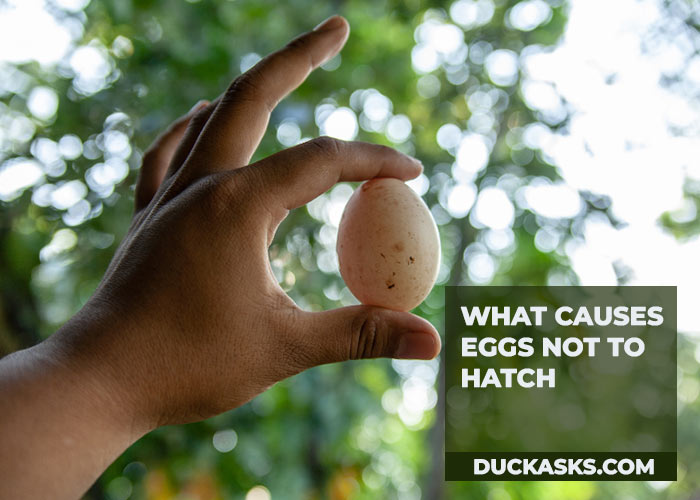
Low temperatures may even kill ducklings. Improper metabolic rate can lead to abnormal organ development. Improper humidity and temperature regulation.
Sometimes eggs are just genetically infertile where the egg does not progress its development and thus aborts itself. You can use the candling to infer if there is any issue with the egg’s fertility.
Other times there are infections that can seep inside the egg so it’s necessary to keep the incubator disinfected and clean.
What Problems Do Ducks Face While Hatching?
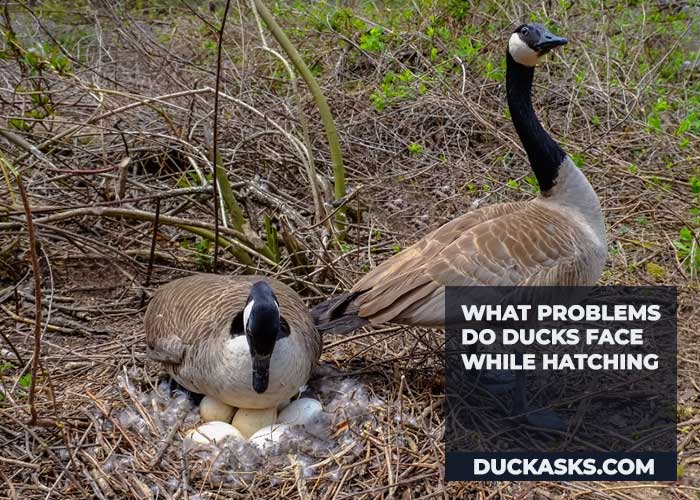
Sometimes when the ducks grow weak, the duckling faces issues breaking the eggshell and as a result may fail to properly break out. Improper eggshell thickness may also have an impact.
If ducks don’t have their limbs properly developed or strengthened it will be difficult for them to come out.
What Does the Mother Duck Do After the Ducklings Hatch?
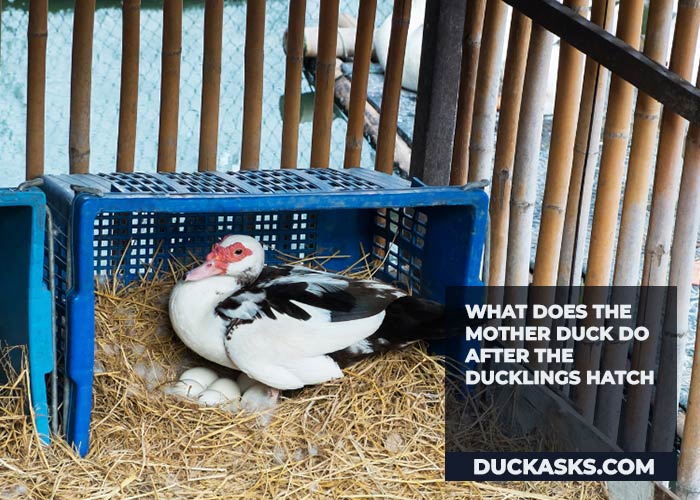
The mother duckling is basically her baby’s protector and guide. She protects the duckling from other mother ducks from harming or killing.
She provides warmth and waterproofing to her newborns. After almost 12 hours, she guides her ducklings to walk toward a nearby waterbody for them to quench their thirst.
Last But Not the Least
Ducklings are born traditionally during springtime, 2 to 3 hours post dawn to receive optimum warmth needed for their health. Their mother ruffles against them to provide the additional temperature.
Mothers are their warriors. She struggles to keep her ducklings safe and sound. And when the time is right, she eventually guides them until they become ready to set on their own.
That will be all for the article today! Hope your knowledge has been enhanced to the level you require and more.
Visit any of our social media platforms for more updates and knowledge on ducks and ducklings. If you liked this article feel free to share it on any of your social media pages and stay connected with us on⏤ Facebook, Twitter & Pinterest.

